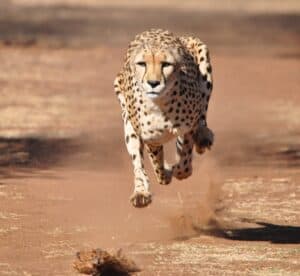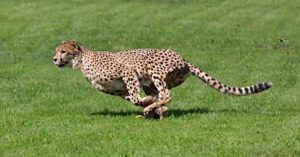Continue reading for our analysis...
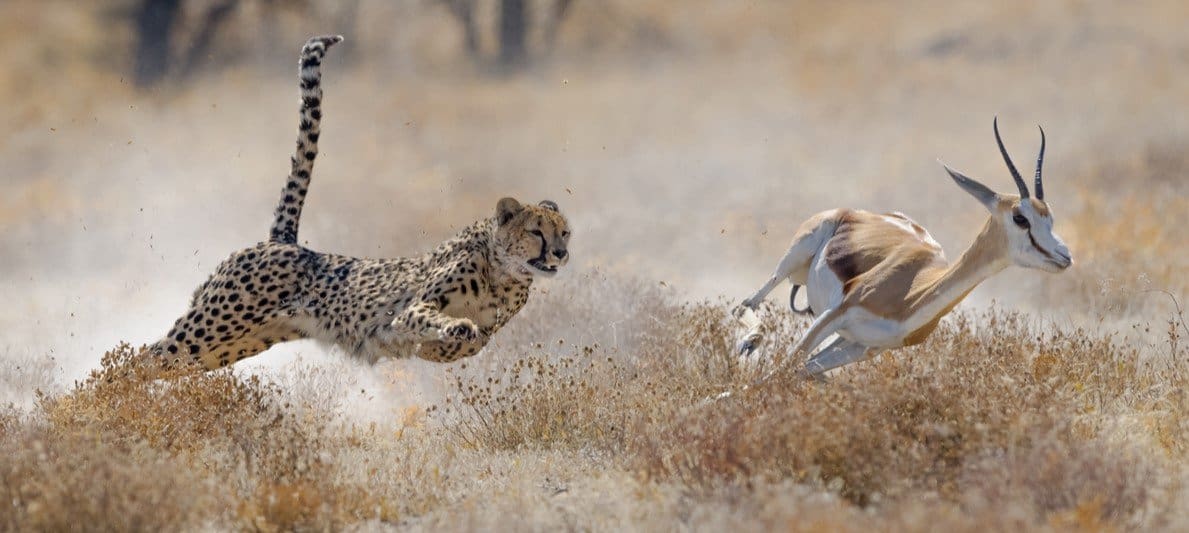
Cheetahs are the fastest land animals on the planet, but they can only keep up their max speed for a few moments. For this reason, 40-50% of cheetah hunts end in failure. As seen in the video above, sometimes the prey turns on the cheetah.
Filmed on the Maasai Mara National Reserve in Kenya, Africa, we see a typical scene of a cheetah stalking a wildebeest. When the big cat gets close enough, it launches the attack. It seems a sure win for the cheetah for a moment. That is, until the wildebeest decides to spin around with its horns down.
Knowing the danger it now faces, the cheetah takes off in the other direction. The wildebeest continues the chase until it’s certain the cheetah submits. This failed attempt is a win for the wildebeest. Let’s learn more about cheetah hunts before watching the video at the end!
What Do Cheetahs Hunt?
Cheetahs commonly prey on small antelopes such as gazelle, springbok, and duiker. Cheetahs also hunt the babies of larger animals such as warthogs and kudu. Occasionally, they also eat birds and rabbits.
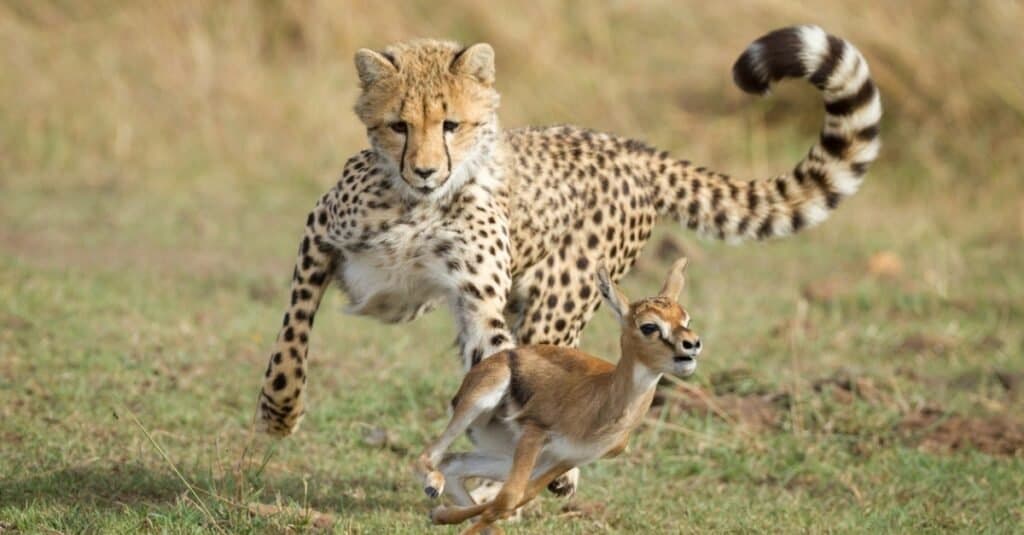
Small
antelopes
are commonly hunted by cheetahs.
©iStock.com/StuPorts
Why Do Cheetah Hunts to End in Failure?
While the cheetah’s max speed of 70 miles per hour usually outruns most animals, their inability to maintain such speeds results in the prey escaping. If a cheetah cannot trip the prey and secure a killing bite within about 30 seconds, the hunt fails. Cheetahs expend a huge amount of energy when they use their maximum-speed burst which means they must rest after every hunt, failed or not. Therefore, even if the hunt is successful, the need to rest before eating means they often lose their kills to other predators like lions and hyenas. Cheetahs are unable to fend off these larger, stronger carnivores.
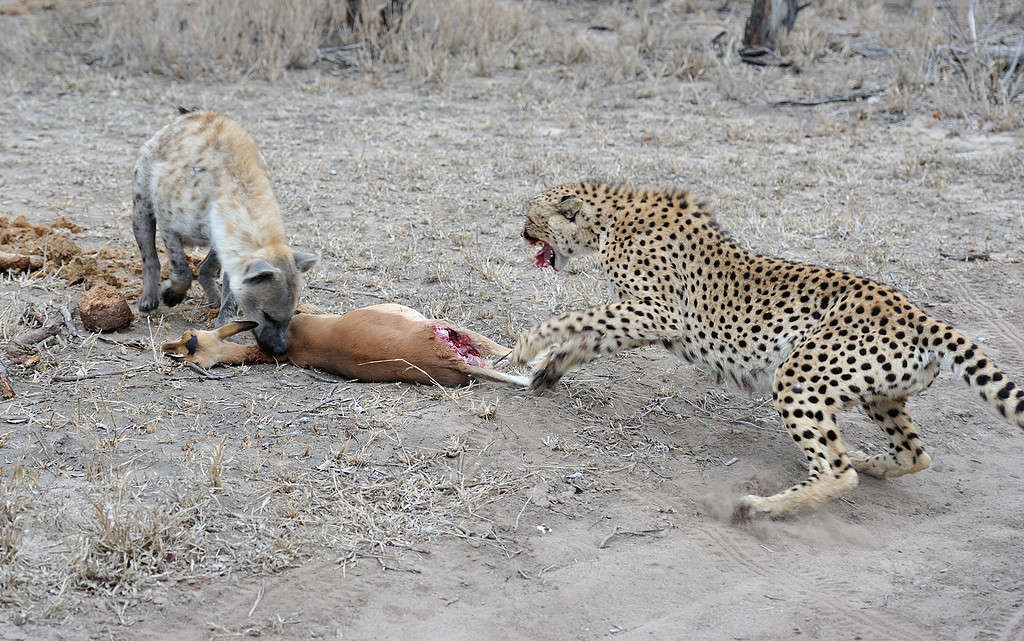
Hyenas often follow cheetahs at a safe distance in hopes they’ll be able to steal a kill.
©mit4711/iStock via Getty Images
Do Prey Animals Fight Back Often?
Larger prey animals, such as the wildebeest in our video, posses the ability to fight back. This is another reason for cheetah hunt failure. Because the cheetah doesn’t have the stamina to wear them out, the attacker will most likely back down should any confrontation occur.
This is much unlike lions who will use their pride members to tire an animal out before launching the final attack. A coalition, or group formed of males, can take down much larger prey. This is clearly seen in another video of a lion coalition killing a cape buffalo. Only lions and cheetahs form coalitions, as far as we know. Cheetah coalitions have a higher hunting success rate than solitary cheetahs.
Is This Normal Behavior?
What makes this particular video such a great scene to watch is how and when the wildebeest flips the script on the hunting cheetah. Normally in a chase scenario like our example, the cheetah blasts off and runs down its prey, or the would-be victim has a lucky move that gives them just enough room to have some separation resulting in an escape. In the video, it seems like the wildebeest decides to spin around after being chased and surprise the big cat with some tough horns! It was an amazing unexpected move that saved its own life.
Thank you for reading! Have some feedback for us? Contact the AZ Animals editorial team.



